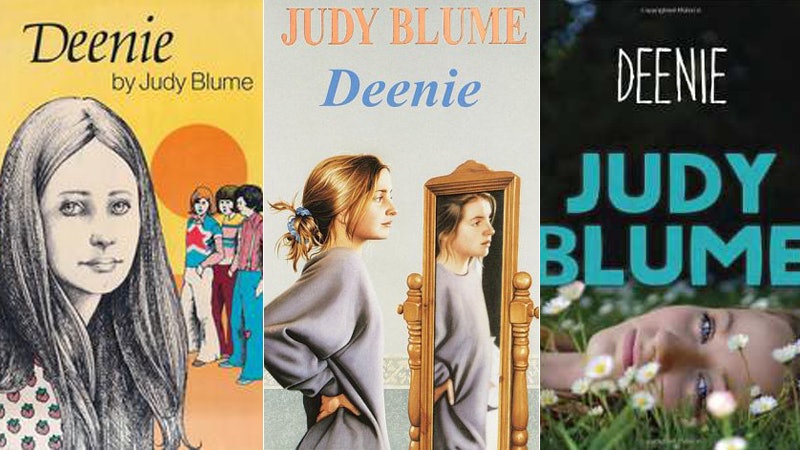

The generally soft-spoken Blume finally erupts: “Are you hung up about masturbation? One scene in one book!” “Why can’t you write an interesting book for 10-year-olds without getting into a discussion about masturbation?” hectors Buchanan.


At night, to relax and go to sleep, the stressed-out Deenie touches “her special place” and feels much better. “Deenie,” her 1973 novel in question, is about a teenage girl with scoliosis whose domineering mother wants her to be a model. The documentary includes many clips of Blume’s interviews over the years, including a 1984 appearance on the political show “Crossfire,” during which the conservative pundit Pat Buchanan accused her of being obsessed with sex. She divorced, remarried and divorced again before finding her soul mate. So she kept writing, kept selling books, which kept getting banned. As her popularity grew, her books came under fire for their frank approach to adolescent and teen life, and her marriage crumbled. When her first book made a splash, she says, other moms on her block resented her. A 1960s housewife raising two kids in suburban New Jersey, she was married to an attorney who “allowed” her to write as long as dinner was on the table when he got home from work. Now 85, she is well overdue for this kind of attention.Īfter all, her professional trajectory perfectly recapitulates her times. This is why you have probably been hearing and reading so much about Blume lately.

In a case of great timing, one week before the movie version of “Margaret” hit theaters April 28, the documentary “Judy Blume Forever” was released on Prime Video. Thanks an awful lot.”Īh, the perfectly rendered narcissism of youth. I know you wouldn’t have missed this for anything! Thank you God. It is not until the end of the book, when she spies blood in her undies, that she has an epiphany: “I know you’re there, God. In her quest, Margaret attends temple with her grandmother, church services with friends and, unwittingly, confession at a Catholic church (which she flees when she realizes she has nothing to tell the priest). “But if you aren’t any religion,” asks Margaret’s friend, “how are you going to know if you should join the Y or the Jewish Community Center?” She puzzles over whether she should choose one religion over the other. It was about a girl trying to decide whether God really exists, about her dismay upon learning that her mother’s Christian parents disowned their daughter for marrying a Jew. “Are You There God? It’s Me, Margaret” was also - and maybe even mostly - a story about an 11-year-old girl caught between the two belief systems of her parents’ families: Christianity and Judaism. I’m not sure it did, but we did love the book, and we discovered, to our delight, that it delved into topics even deeper than the physiological changes of the adolescent female body. Maybe a good novel would help pierce the veil of her denial?


 0 kommentar(er)
0 kommentar(er)
